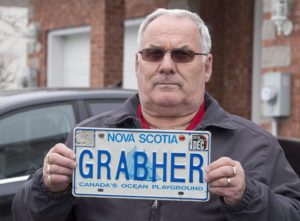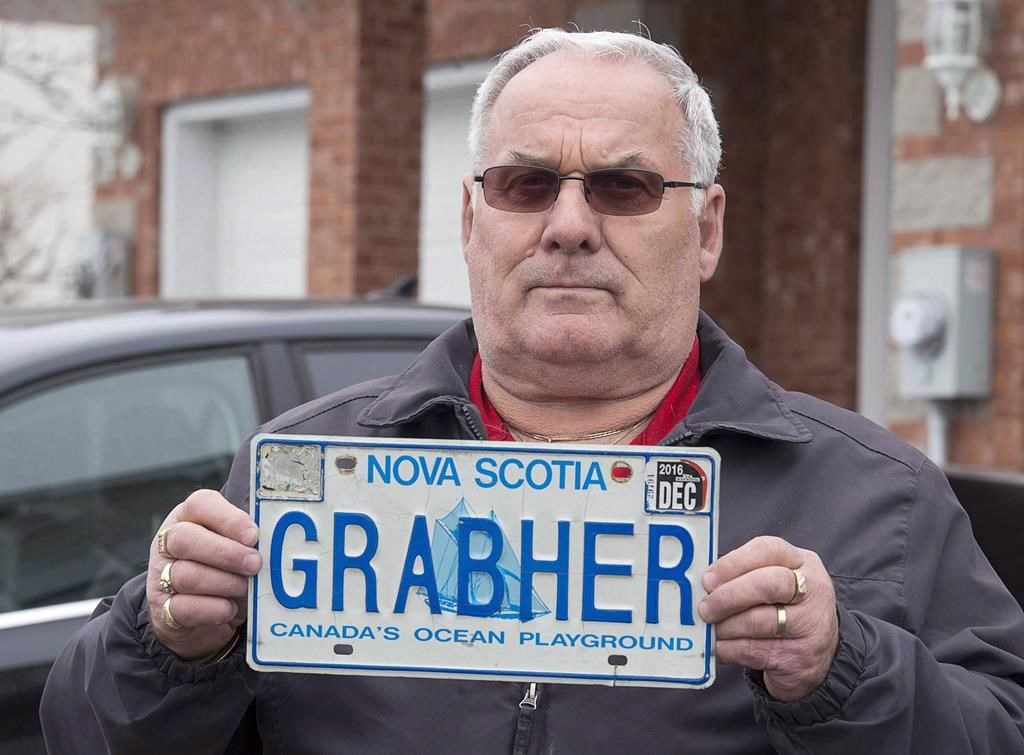HALIFAX: The Justice Centre for Constitutional Freedoms (jccfold.wpenginepowered.com) is disappointed with a court ruling preventing Lorne Grabber, a Dartmouth, Nova Scotia senior citizen 

Mr. Grabher’s claim was based on freedom of expression and equality rights as protected by the Canadian Charter of Rights and Freedoms. In also challenging the constitutionality of the pertinent Regulation relied on by Nova Scotia, Mr. Grabher pointed to a list of “banned” words the province has compiled to illustrate the arbitrary system by which the province regulates personalized plates. The list prohibits the use of many harmless words, such as “FENCE”, “AND”, “SAMPLE”, “NONE”, “SAFE”, and “GOLD”. Justice Darlene Jamieson found that the list was largely irrelevant.
Justice Jamieson legitimized governments’ use of words like “Dildo”, “Crotch”, “Swastika” and “Sh*t”, and phrases such as “Negro Lake” and “Blow Me Down”, on public property, but ruled that Mr. Grabher cannot use his family name on a licence plate because it might be “offensive”. Justice Jamieson also disagreed with a recent Manitoba Court ruling in finding that “the nature of a [personalized] licence plate is not compatible with free expression.” She held that “the provincial government cannot sanction having vehicles with government-owned plates traveling the highways of this province and country bearing messages that could be considered ‘offensive or not in good taste.’”
Mr. Grabher, his father and his son used a personalized plate with the family name on it for 27 years without incident. Lorne first purchased the plate as a gift for his late father in 1991. It became a source of family pride over three generations, reflecting the family’s German-Austrian roots and heritage. Mr. Grabher’s son also has the family name on his own personalized Alberta licence plate.
The Nova Scotia government received a lone complaint from an unidentified individual in 2016 about the plate. On December 9, 2016, the Nova Scotia Registrar of Motor Vehicles notified Mr. Grabher that his plate had been cancelled. The letter claimed the plate could be “misinterpreted” as a “socially unacceptable slogan.”
The Justice Centre contacted the Registrar demanding the plate be reinstated, noting the decision was “discriminatory”, “arbitrary”, and “unreasonable”, and a violation of free expression as guaranteed by the Canadian Charter of Rights and Freedoms, but the Registrar refused to voluntarily reactivate Mr. Grabher’s personalized plate. In May 2017, the Justice Centre launched a court action against the Registrar on behalf of Mr. Grabher and a lengthy hearing took place in April 2019.
“Mr. Grabher and his family are profoundly disappointed”, stated Justice Centre Litigation Director, Jay Cameron, who represents Mr. Grabher. “We are reviewing the decision.”









